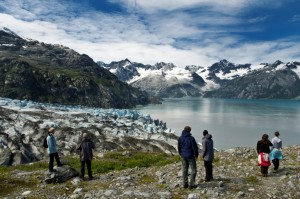Here’s a little factoid from the Outdoor Industry Association’s latest report on the economic impact of outdoor recreation: Americans spend a lot more on bicycling gear and trips ($81 billion) than they do on airplane tickets and fees ($51 billion).
And here’s another: Americans spend almost as much on winter sports ($53 million) as they do on Internet access ($54 million).
Those random comparisons are fascinating…and the report has others…but that’s not why you want to look at this. You want to look at this to get an understanding of what outdoor recreation means to the U.S. economy—in dollars, taxes and jobs.
How big is the outdoors, moneywise? Every year, 140 million Americans spend $646 billion on hiking, camping, biking, fishing and other outdoor activities (which is considerably more than the $331 billion we spend on pharmaceuticals).
All that gear and travel generates about $40 billion in federal tax revenues and another $40 billion in state and local taxes. And it supports more than 6 million jobs (which is more than the construction industry or finance and insurance).
In other words (as the report says), “Outdoor recreation is bigger than you think and a significant economic driver in the United States.”
The Western Governors’ Association gets it. Or says it does. The WGA recently released A Snapshot of the Impact of Outdoor Recreation, a study focused mostly on western states. The snapshot was produced in partnership with the Outdoor Industry Association and four other industry groups: the Motorcycle Industry Council, Recreational Off-Highway Vehicle Association, Specialty Vehicle Institute of America and National Marine Manufacturers Association.
The WGA notes that this “study marks the first time the non-motorized and motorized recreation industries have joined forces to provide a complete picture of the economic impact and importance of outdoor recreation for the economy.”
The snapshot was produced by the same folks who did the Outdoor Industry Association’s report and replicates some of the national information. The message is the same: the outdoors is bigger than you think. It means peace, nature, quiet, and pretty average food that tastes much better than it should because you’re starving and everything tastes better outdoors. And it means money. Huge Scrooge McDuck piles of cash. And jobs.
You can be sure that some elected officials look at our wide open spaces and still see a potential timber harvest or ore deposit. But at least some of them acknowledge there’s a big benefit in preserving what we have as we got it. Now let’s see if any of this translates to support for bigger budgets…or even smaller cuts…for national and state parks.
Photo of Glacier Bay National Park and Preserve by T. Rains, via nps.gov.










